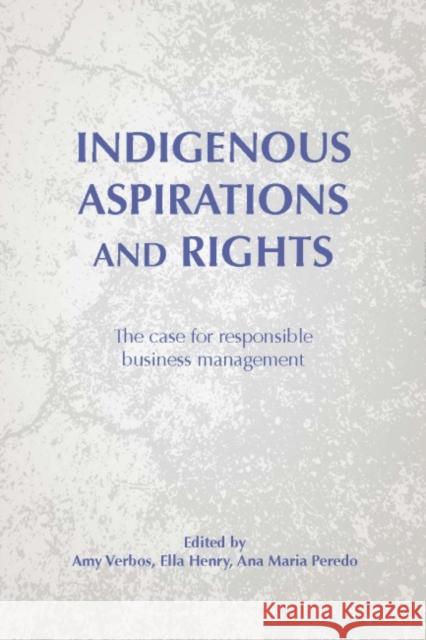Indigenous Aspirations and Rights: The Case for Responsible Business and Management » książka
Indigenous Aspirations and Rights: The Case for Responsible Business and Management
ISBN-13: 9781783533237 / Angielski / Twarda / 2017 / 352 str.
Indigenous Aspirations and Rights: The Case for Responsible Business and Management
ISBN-13: 9781783533237 / Angielski / Twarda / 2017 / 352 str.
(netto: 720,05 VAT: 5%)
Najniższa cena z 30 dni: 654,86
ok. 16-18 dni roboczych.
Darmowa dostawa!
Indigenous peoples are recognized as groups with specific rights based on their historical ties to particular territories. The United Nations estimates there are 370 million Indigenous peoples, with Indigenous populations being recognized in Australia, Canada, New Zealand, the United States, the Arctic region, Central and South America, and across Asia and Africa.
Indigenous Aspirations and Rights takes an Indigenous perspective in examining the intersection of business with Indigenous peoples' rights, in light of the UN Global Compact and the PRME. Indigenous rights include, but are not limited to, human, cultural, educational, employment, participatory development, economic, and social rights, rights to land and natural resources, and impacts on identity, institutions, and relations. This book illustrates three main aspects of business practices in relation to Indigenous peoples: learning from failure, unresolved issues and on-going challenges, and developing models for success.
Edited by three leading voices in Indigenous rights research and practice, Indigenous Aspirations and Rights features contributions from around the globe. The work draws together policy implications for management and implications for Indigenous peoples, and examines how the PRME, the UN Global Compact, and the concept of socially responsible business can be expanded to encompass more positive outcomes for Indigenous peoples.











